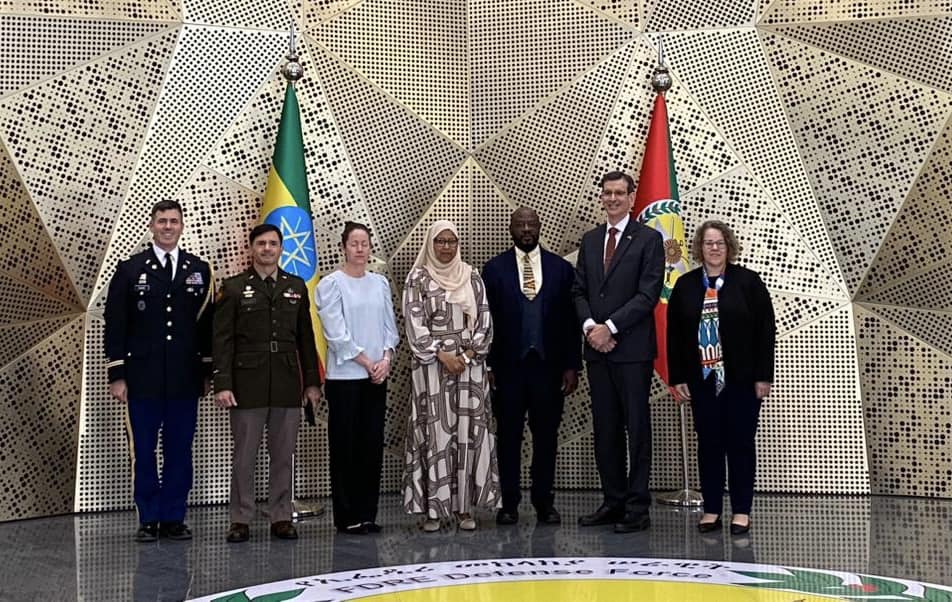(Photo: U.S. Embassy in Addis Abeba)
Addis Abeba – Senior U.S. officials met on Monday with Ethiopia’s Minister of Defense, Aisha Mohammed, to discuss the ongoing militarized conflicts in Ethiopia’s Amhara and Oromia regions, as well as efforts to advance Disarmament, Demobilization, and Reintegration (DDR) in Tigray, according to a report from the U.S. Embassy in Addis Abeba.
The U.S. delegation included Ambassador Ervin Massinga, Deputy Assistant Secretary of State Joshua Spera, Deputy Assistant Secretary of Defense Maurine Farrell, Major General Todd Cashman, and Director Michael Tomaszewicz.
The discussions also explored opportunities to strengthen bilateral relations between the two countries, as noted in a brief statement shared by the embassy on social media.
State media reported that Minister Aisha Mohammed emphasized the importance of the military relationship between Ethiopia and the U.S., describing it as crucial for regional stability, counter-terrorism efforts, and peace-building initiatives. She expressed Ethiopia’s commitment to strengthening this long-standing partnership.
Deputy Assistant Secretary of Defense for African Affairs, Maurine Farrel, reiterated the United States’ strong interest in enhancing military cooperation with Ethiopia, particularly in the areas of security and peace-building.
Previously, U.S. Secretary of State Antony Blinken raised concerns about the escalating violence in Ethiopia’s Amhara region and underscored the importance of political dialogue during a phone conversation with Ethiopian Prime Minister Abiy Ahmed.
Blinken also reaffirmed U.S. support for the implementation of the Cessation of Hostilities Agreement, which brought an end to the two-year conflict in Tigray.
The Amhara region has experienced over 14 months of severe militarized conflict between government forces and non-state Fano militias.
Similarly, the Oromia region has endured six years of ongoing conflict between government forces and the Oromo Liberation Army (OLA), resulting in significant civilian casualties, widespread kidnappings, arbitrary arrests, and a worsening humanitarian crisis. AS





